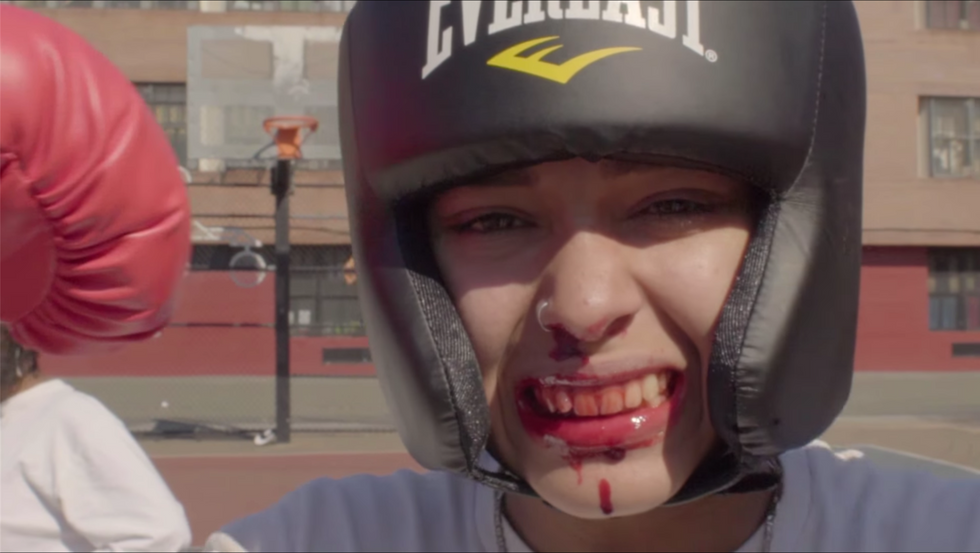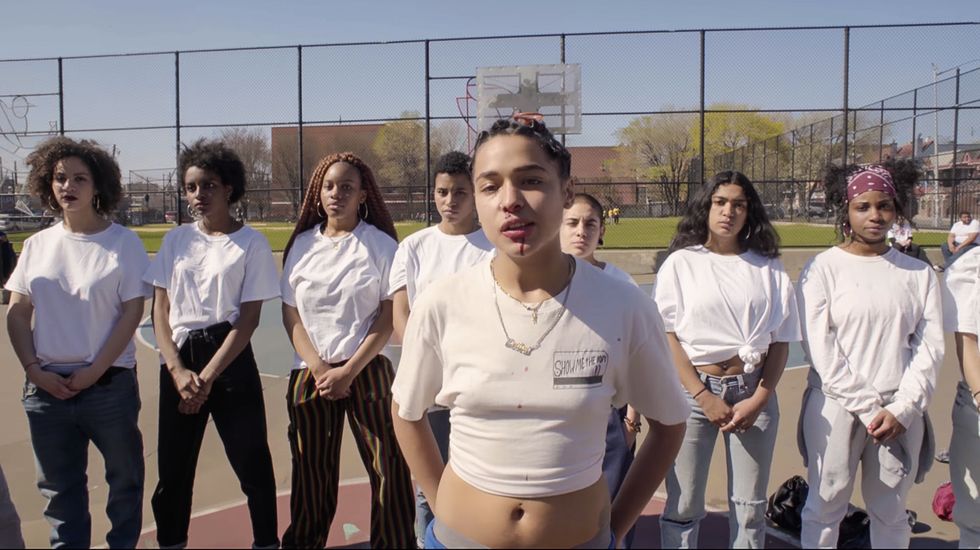Destiny Nicole Frasqueri aka Princess Nokia released her first ever album this month, "1992 Deluxe", landing at #8 on iTunes. Despite it being a remaster of September 2016’s "1992" with an additional eight tracks, Nokia’s fans are still exalted. The heavy hitters of the album are from the previous release: "Tomboy", "Brujas", and "Kitana". Considered the party tracks, they show only a glimpse of the artist Destiny is. "1992" introduces us to an Afro-Indigenous skater with “little titties” and a “phat belly”, but "1992 Deluxe" shows us how she navigated the abuse she endured as a foster child. The combination of old and new songs gives listeners the opportunity to see and understand the multitudes of her as an artist and person.
Unlike Nokia’s previous projects, "1992 Deluxe" consists of only rap, so it’s important to explore her style and what influences her. For the most part, she has two modes of rapping. The first one is quite aggressive and characterized by its loudness, vulgarity, and quick paced delivery. For instance, she starts "Kitana" off with a bang, yelling this,
“Yeah, hoe!
Kitana, Kitana, Kitana, Kitana
Mortal Kombat, I’ll see you mañana! (3x)”
- Lyrics courtesy of Genius
It acts as a strong introduction, as well as a ridiculously catchy chorus, which millennials are known to love. The corresponding music video features Princess Nokia in a white t-shirt and basketball shorts decked out in Everlast headgear and boxing gloves. The premise of the video is her duking it out with several other women (possibly a metaphor about life) while her girls watch. The fights are shown as a bonding experience and not negative, as all the women in the video are drinking, eating sorbet, and riding bicycles together.
Her second mode is less “bangy” as she calls it, and tends to tackle more serious issues like gentrification in "ABCs of New York" and growing up a misunderstood foster child in "Bart Simpson". Destiny also talks more about her childhood and her experience of New York as a woman of color. Regarding technique and sound, her voice becomes much deeper and slower, rapping against simplistic and classic hip-hop beats. Verse 2 of "ABCs of New York" does an exemplary job displaying mode two,
“G is for the ghetto girl
And rainbow clothes
Baby hairs and well done toes
Single mothers carry those
Bummy sneakers
What are those?
Get in going golden go
Hunts Point got the hottest hoes
In the city
Tragic ropes
Splatter street the bloody holes
Shorty dancing on the pole
Casually it's casual b
Bloody hands with the anatomy”
- Lyrics courtesy of Genius
Both styles are crucial because they permit the very necessary expression of her many perspectives, sometimes loud and confrontational and other times calm and reflective.
A feminist, Björk lover, Bruja, and self-described “weird girl”, Princess Nokia is far from regular. She’s different from what exists in the rap world right now, which is intimidating but needed. The rap sphere boasts a collective that is chiefly homogenous and consists of cisgendered heterosexual men and is shrouded in misogyny. Nokia fiercely counteracts the man first ideology.
From her lyrics, style, and purpose as an artist, she is an anomaly alongside other female contemporaries such as Nicki Minaj and Young M.A. In The Creator Class’s "Good Goddess: In conversation with Princess Nokia" she touches on what her purpose as an artist is:
Destiny is the carefree black girl many of us didn’t know we needed but thankfully exists. You can see Princess Nokia perform at AfroPunk Fest - Atlanta on October 14.







 The minimum wage is not a living wage.
StableDiffusion
The minimum wage is not a living wage.
StableDiffusion
 influential nations
StableDiffusion
influential nations
StableDiffusion












